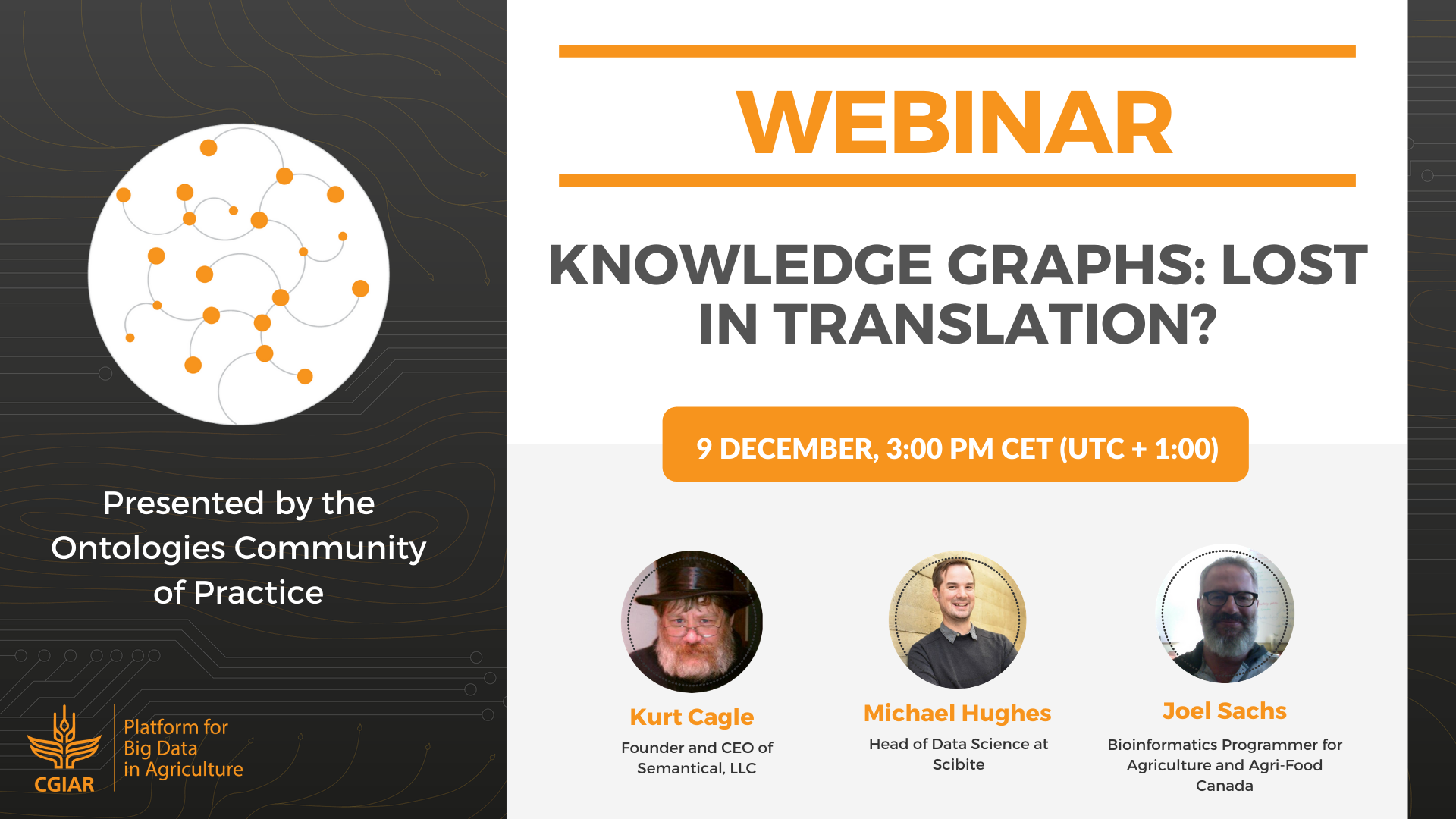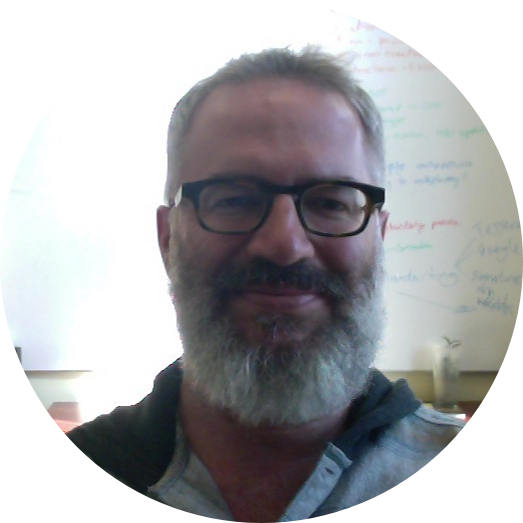Event
[WEBINAR] Knowledge graphs: Lost in translation?
By CGIAR Platform for Big Data in Agriculture
December 9, 2019
3:00 PM CET (UTC + 1:00)
–
Online
December 9, 2019 3:00 PM CET (UTC + 1:00)
Online

Title: Knowledge graphs: Lost in translation?
Date: 9 December 2019
Time: 3:00 CET (UTC+1:00)
While defining machine learning and artificial intelligence during the second webinar in the series by the Ontologies Community of Practice, speakers mentioned the term knowledge graphs. Knowledge graphs have become popular in recent years and embrace a growing interest in the research domain. In recent years, Google, Microsoft and Wikidata have been using knowledge graphs, causing a growing interest in the topic. But what is a knowledge graph?
Our Ontologies Community of Practice will explore what a knowledge graph is, what the difference is between a knowledge graph and an ontology, how a knowledge graph is used, and examples in the pharmaceutical and biodiversity domains.
Presenters
 Kurt Cagle
Kurt Cagle
Founder and CEO of Semantical, LLC
Kurt Cagle is a writer, data scientist and futurist focused on the intersection of computer technologies and society. He is the founder of Semantical, LLC, a smart data company. He is currently developing a cloud-based knowledge base, to be publicly released in early 2020. He writes a weekly column on enterprise data management, artificial intelligence, blockchain and other advanced technologies for Cognitive World section of Forbes Magazine.
Michael Hughes
Head of Data Science at Scibite
With an extensive background of over 15 years’ experience within Bioinformatics and Text Analytics, Michael Hughes’ experience working with data in the life sciences domain includes roles as a Data Scientist within Unilever’s Toxicology group, as a Senior Text Analytics Consultant for Thomson Reuters and currently as head of Data Science at Scibite.
Joel Sachs
Bioinformatics Programmer for Agriculture and Agri-Food Canada
Joel Sachs has experience in semantic, data mining and programming in the ecological domain. He worked on Spire and AISL projects. Spire was about integrating ecological and environmental data (especially citizen science observations) on the semantic web; AISL is about sharing trusted information with the right people.
Access information
Click here to join the webinar online.
Please mute your microphone when you are not speaking in order to minimize background noise.
To join via phone:
1. Dial:
- +1.408.740.7256 (if joining from the United States)
- +1.888.240.2560 (US toll free number)
- +1.408.317.9253 (alternate US number)
- Click here to see a full list of numbers to dial based on where you’re calling from.
2. Enter Conference ID: 941 483 403

 Kurt Cagle
Kurt Cagle



